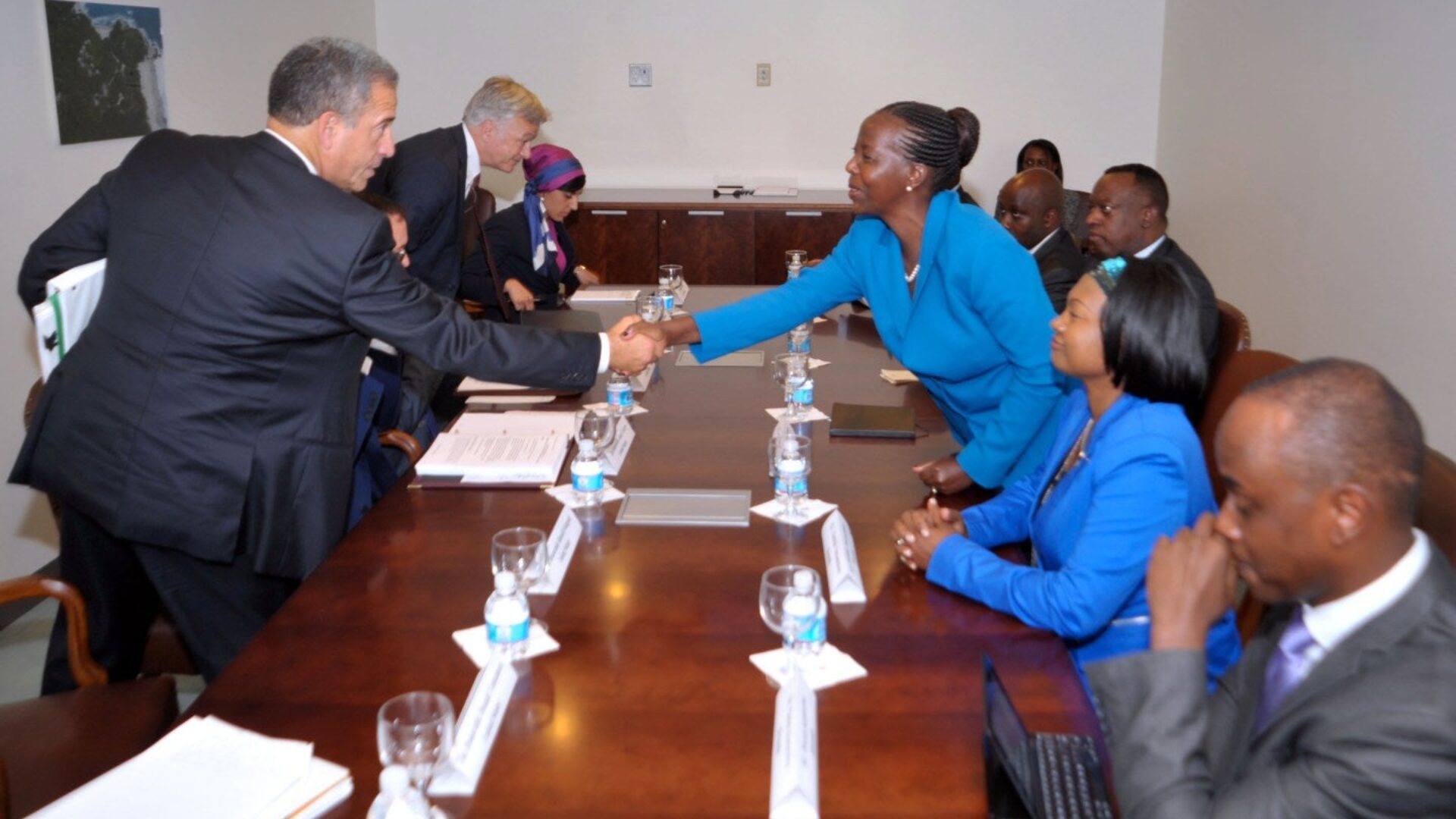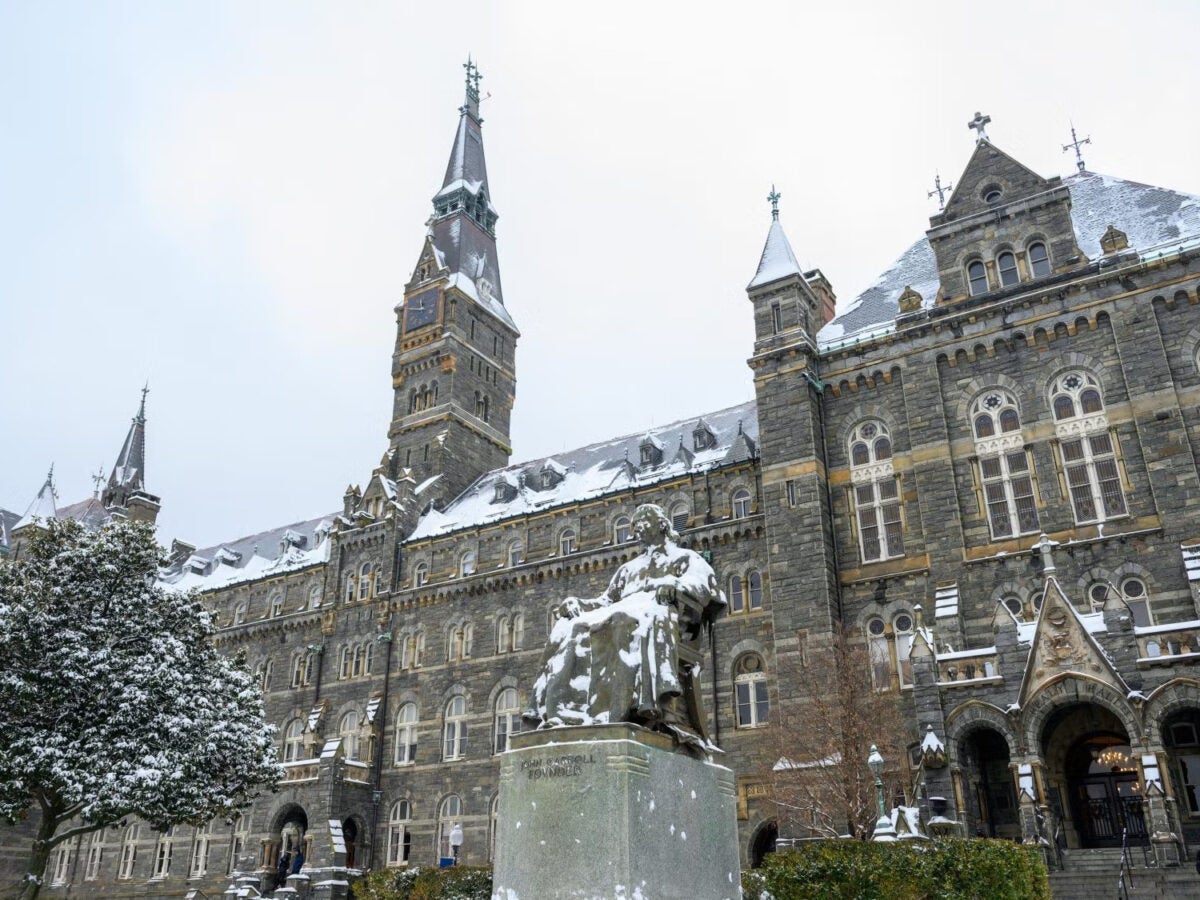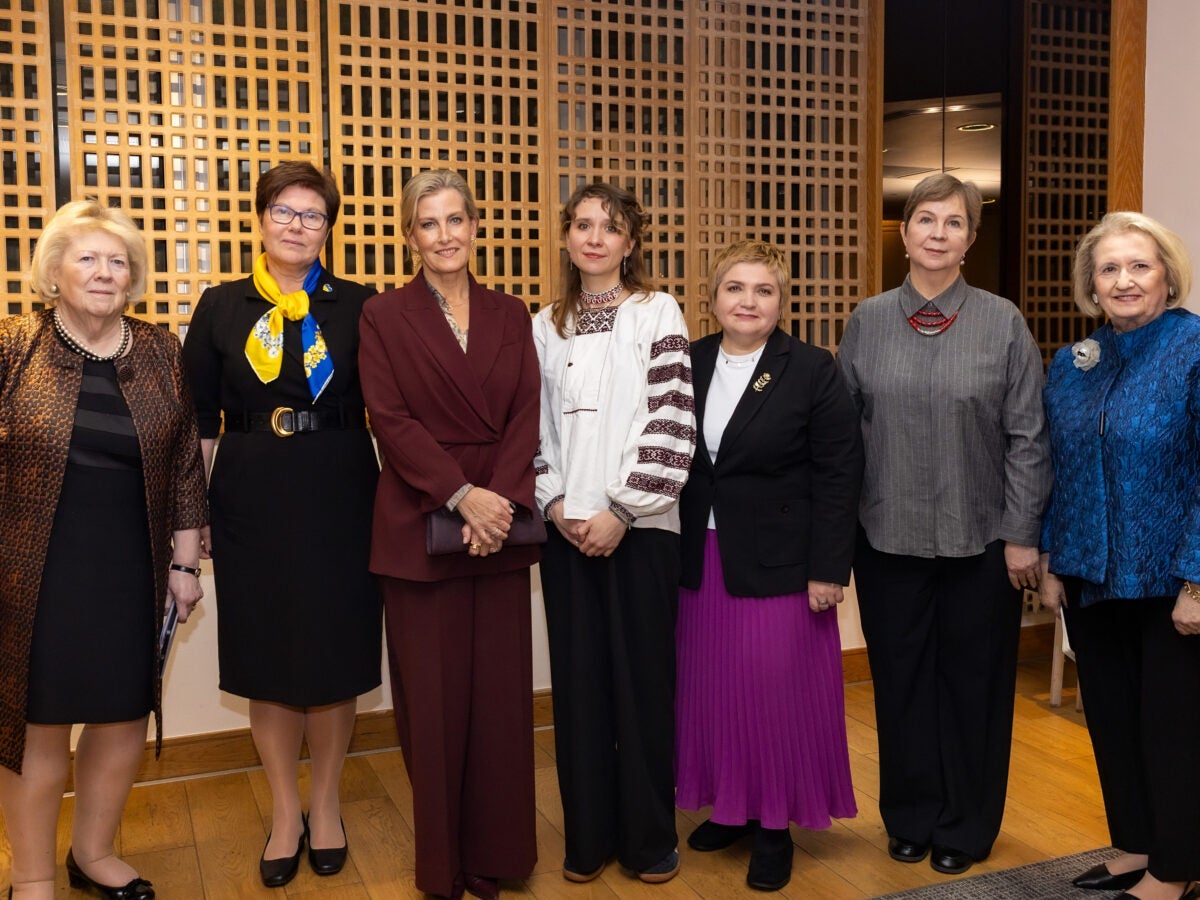A Discussion with Louise Mushikiwabo, Foreign Affairs & Cooperation Minister of Rwanda

“Rwanda is a country with initiative and ambition. Rwanda is a nation transformed.”
On Tuesday, September 30, the Georgetown Institute for Women, Peace, and Security launched this semester’s ministerial roundtable series with a discussion with Louise Mushikiwabo, the Rwandan Foreign Affairs and Cooperation Minister. Minister Mushikiwabo candidly discussed the current status of Rwanda domestically and within the international sphere, and portrayed a nation actively working to improve the lives of its people and become a middle-income nation by 2020.
In 1994, Rwanda was the site of horrific violence, rape, and mass killing. In 100 days, 800,000 Rwandans or 10 percent of the total population were murdered. The overwhelming majority of those killed were ethnically Tutsi, in addition to moderate Hutu as well as members of the minority Twa group. The ethnic cleansing campaigns and the state-sponsored atrocities of 1994 are recent scars in Rwanda’s history. However, in the years following the conflict, Rwanda has made significant advances, both domestically and internationally. According to Mushikiwabo, there is no place for destructive or divisive politics in post-genocide Rwanda.
Minister Mushikiwabo highlighted the fact that Rwanda has “opened up” since the early 1990s, a significant change for a nation that previously made it difficult both for people to enter the country and for Rwandan citizens to leave the country. She noted Rwanda’s engagement within both Anglophone East Africa and Francophone Central Africa as key parts of the policy for strategic openness that is integrated throughout President Paul Kagame’s administration. She cited numerous improvements in Rwanda’s economy and the need to embrace technology and prioritize energy, whether through the mining potential within the nation or the methane gas available in Lake Kivu. Minister Mushikiwabo highlighted the role of the private sector in growing the economy and creating employment opportunities – including for the most downtrodden – by referencing the fashion company Kate Spade, which supplies goods from Rwandan women. According to Minister Mushikiwabo, foreign direct investment as well as welcoming foreign workers will help Rwandan business to develop and compete in the international marketplace.
Minister Mushikiwabo described a nation that has changed dramatically since the violence of 1994. The single-most important factor in the nation’s post-genocide rebuilding – economically and politically – has been the inclusion, participation and leadership of women. She stated, “I am amazed by how much women have transformed Rwanda.” Following the 1994 conflict, the Rwandan constitution required 30 percent of Parliamentary seats to be held by women. Today, women hold 64 percent of the seats in Parliament. They are also being appointed to powerful roles traditionally reserved for men, increasing the presence of women throughout the government. Women in positions of power bring in the voices and perspectives of women into policy. As Minister Mushikiwabo put it, “when women are in positions of leadership, they look out for women.” The government budgets for gender-specific programming to meet the needs of women throughout the country.
The government is working to end the gendered division within Rwandan culture both at the policy and practical levels. Women are fully engaged in society at all levels and increasingly have access to the tools needed to actively and effectively participate. The government created different programs for women to receive training that helps augment their positive impact on society. The programs link women to others doing similar work within the country, within the region, or internationally. In turn, it is evident that much of Rwanda’s progress can be credited to the inclusion of women in the decision-making process. Rwanda’s progress towards the Millennium Development Goals, for example, can be specifically linked to the inclusion of women into the policy work. As Minister Mushikiwabo pointed out, the MDGs focus largely on issues that are intrinsically linked to the daily activities of women, particularly regarding reducing poverty and increasing access to education. If women are given access to economic opportunities, they are able to support their families. If girls receive education, they will have the opportunity to support themselves. Women are the primary caretakers of children and with access to both resources and education, they will ensure their children receive vaccinations. Women, therefore, play an integral part of Rwanda’s success in the post-conflict period.
Genocide is a political crime in its worst and widest form. In Rwanda, where exclusion was the norm, inclusion is now the national motto. For Rwanda to succeed, Minister Mushikiwabo believes, the people need to stay away from the idea of exclusion, including the exclusion of women. Men are voting for women and women are being appointed to roles that were previously reserved for men. The inclusion of women hasn’t created resentment within the population, but rather Minister Mushikiwabo states the women are doing well, so people are able to accept women’s increased presence in politics. Women’s inclusion in the political structure has clearly had a positive impact thus far on Rwanda’s success since 1994.
Rukmani Bhatia is the 2014-2015 Hillary Rodham Clinton Research Fellow at the Georgetown Institute for Women, Peace and Security. She received her M.A. in German and European Studies from the Georgetown University School of Foreign Service, and a B.A. in International Relations from Wellesley College.
Explore More

End of Year Reflections
This year has been particularly challenging for peace around the world, with…

“No Amnesty, No Silence:” Ukrainian Women Urge Accountability for War-Time Sexual Violence
Last week, the Georgetown Institute for Women, Peace and Security (GIWPS) brought…
